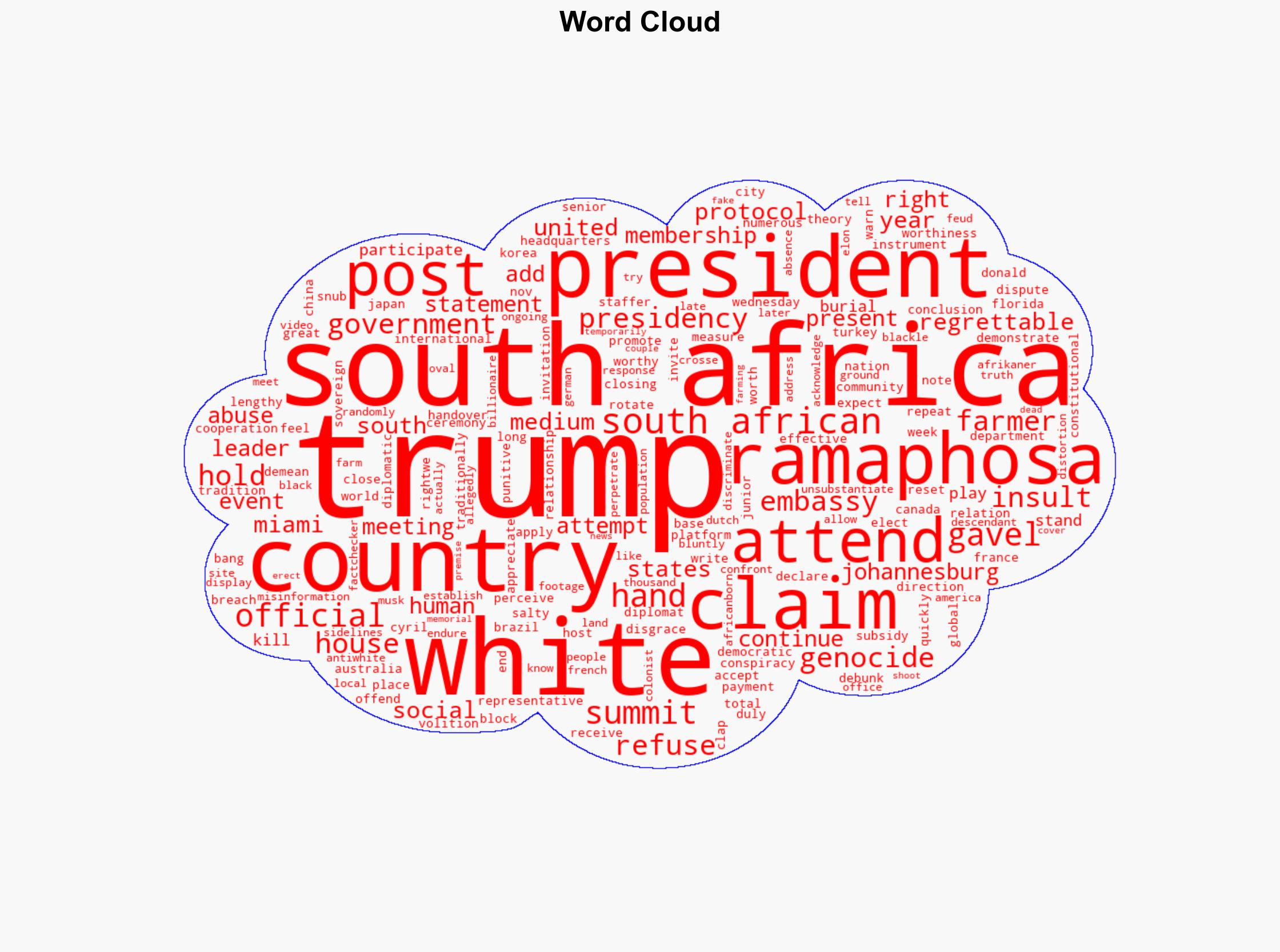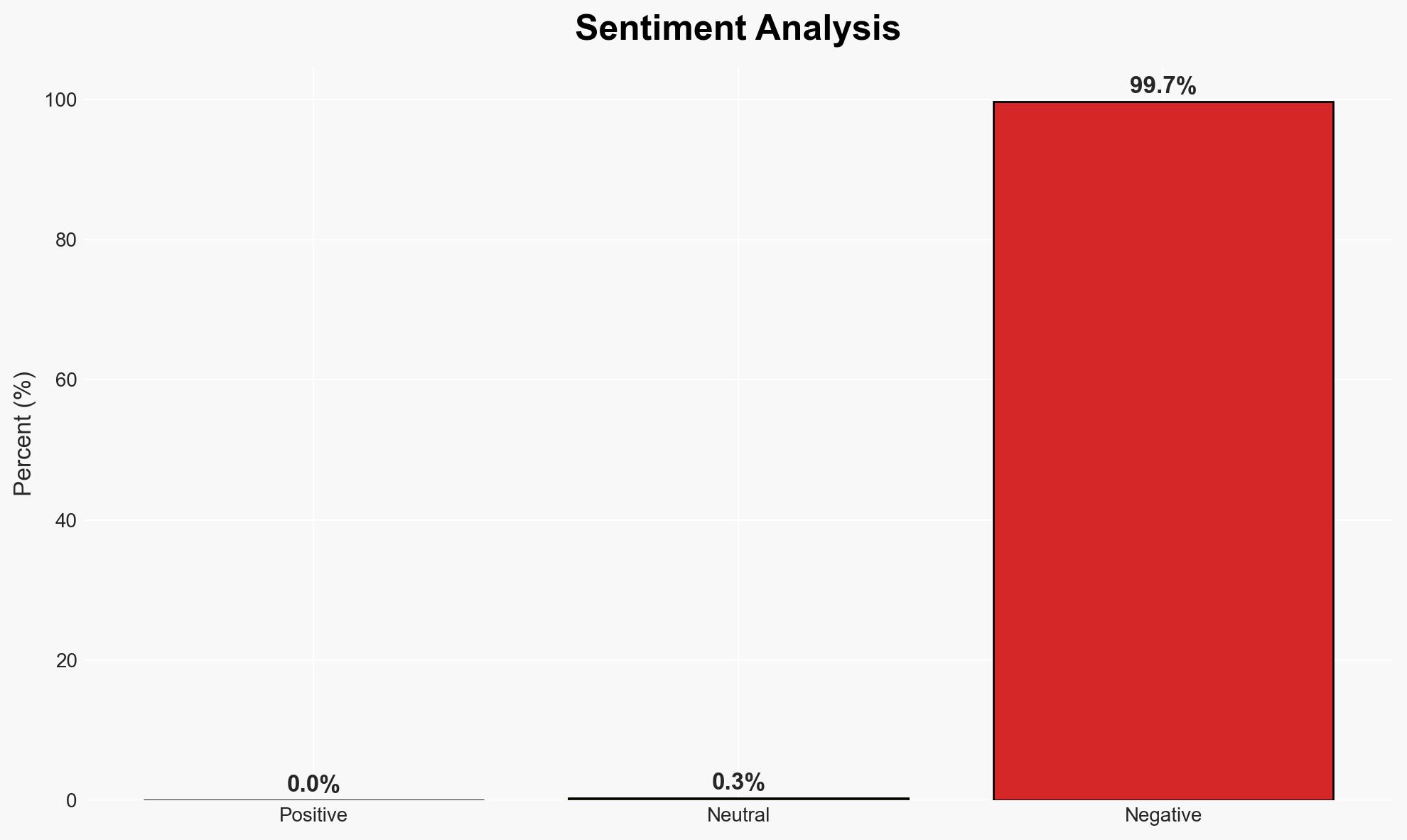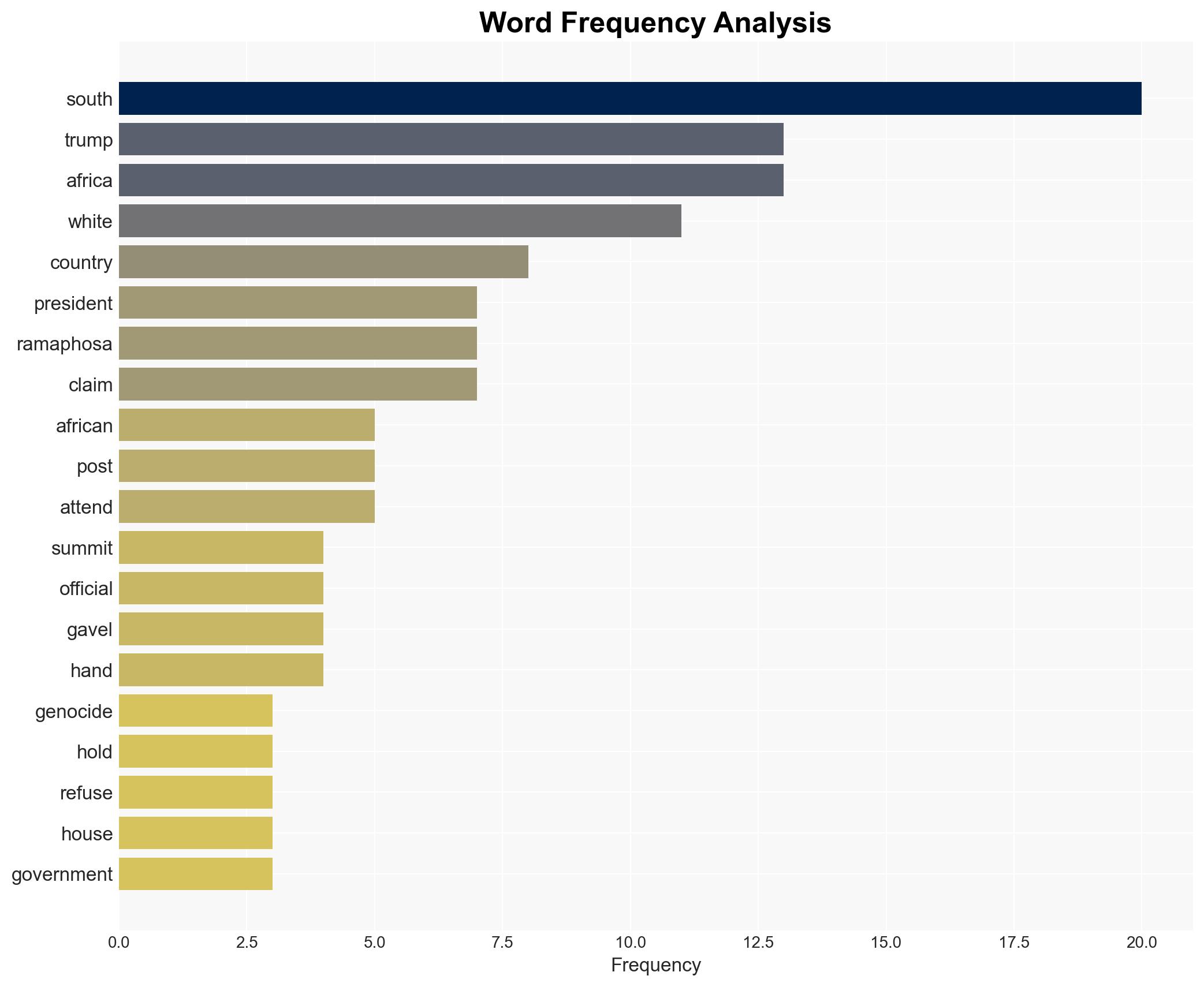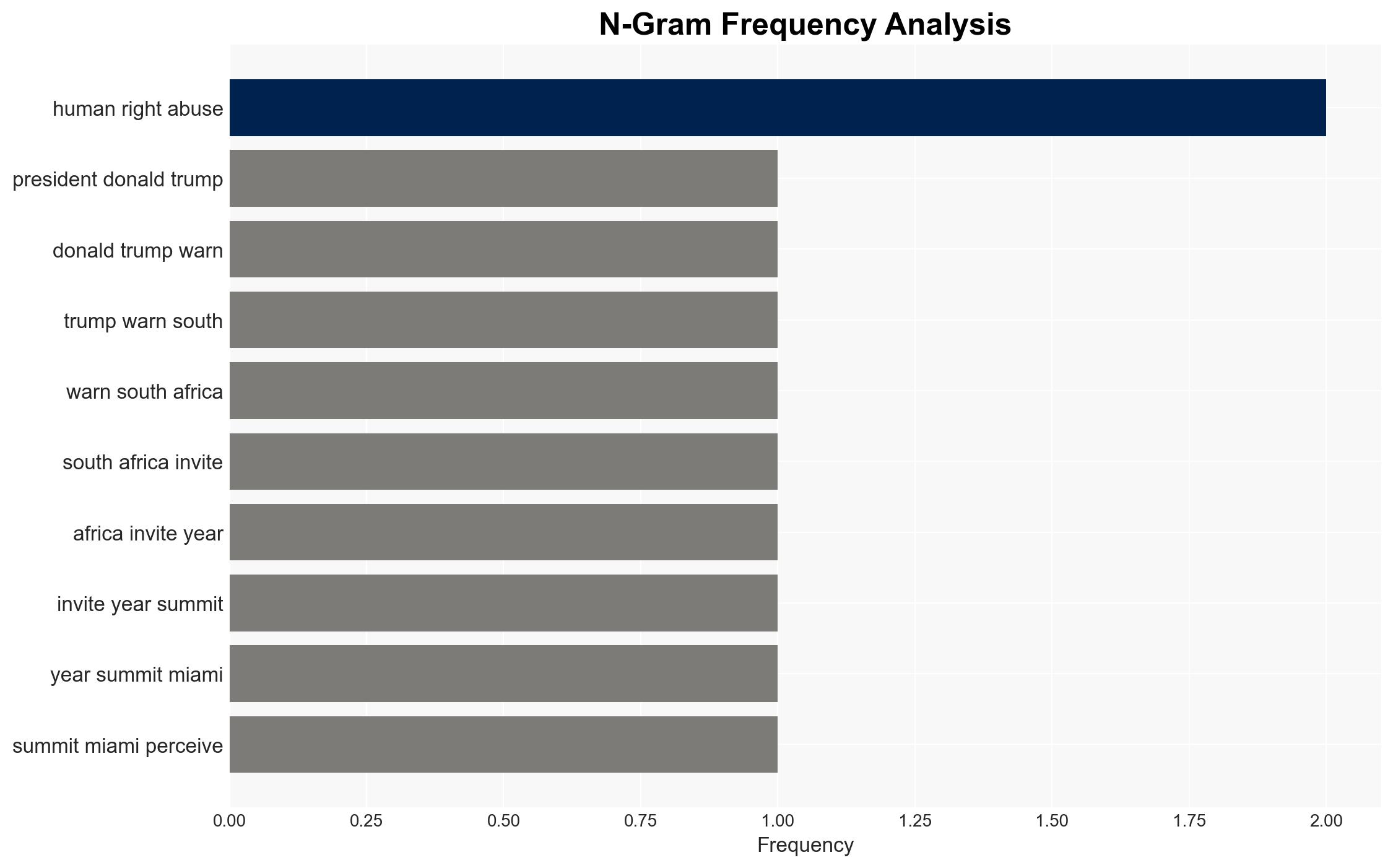Global Leader Criticizes Trump’s Social Media Attacks Amid Diplomatic Tensions Over Upcoming Summit
Published on: 2025-11-27
AI-powered OSINT brief from verified open sources. Automated NLP signal extraction with human verification. See our Methodology and Why WorldWideWatchers.
Intelligence Report: World Leader Absolutely Rips Trumps Social Media Insults
1. BLUF (Bottom Line Up Front)
The diplomatic tensions between the United States and South Africa have escalated following President Trump’s social media posts, which have been perceived as offensive and based on misinformation. This situation could impact U.S.-South Africa relations and broader geopolitical dynamics, with moderate confidence in the assessment that misinformation is a key driver of the conflict.
2. Competing Hypotheses
- Hypothesis A: The tensions are primarily driven by President Trump’s personal beliefs and misinformation regarding South Africa’s domestic policies. Supporting evidence includes Trump’s social media posts and statements, which align with debunked conspiracy theories. Key uncertainties include the extent of internal U.S. government alignment with Trump’s views.
- Hypothesis B: The tensions are a strategic maneuver by the U.S. to exert pressure on South Africa for geopolitical reasons, possibly related to its alliances or economic policies. Contradicting evidence includes the lack of coherent policy actions aligning with this hypothesis.
- Assessment: Hypothesis A is currently better supported due to the direct correlation between Trump’s statements and the escalation of tensions. Indicators that could shift this judgment include new policy actions by the U.S. government that align with strategic geopolitical objectives.
3. Key Assumptions and Red Flags
- Assumptions: The U.S. government’s official stance aligns with Trump’s public statements; South Africa’s response is primarily defensive; Misinformation is a significant factor in the conflict.
- Information Gaps: Internal U.S. government communications regarding South Africa; South Africa’s strategic considerations beyond public statements.
- Bias & Deception Risks: Potential cognitive bias in interpreting Trump’s statements as reflective of broader U.S. policy; risk of manipulation by third parties exploiting misinformation.
4. Implications and Strategic Risks
This development could lead to a deterioration of U.S.-South Africa relations, affecting diplomatic and economic engagements. It may also influence South Africa’s alliances and its role in international forums.
- Political / Geopolitical: Potential realignment of South Africa with other global powers, such as China or Russia, if U.S. relations continue to sour.
- Security / Counter-Terrorism: Limited direct impact, but potential for increased regional instability if diplomatic tensions escalate.
- Cyber / Information Space: Increased misinformation campaigns and digital propaganda could exacerbate tensions and influence public perception.
- Economic / Social: Potential negative impact on trade relations and economic cooperation between the U.S. and South Africa.
5. Recommendations and Outlook
- Immediate Actions (0–30 days): Monitor social media and official communications for shifts in rhetoric; engage in diplomatic dialogue to clarify positions and reduce tensions.
- Medium-Term Posture (1–12 months): Develop resilience measures against misinformation; strengthen partnerships with South Africa and other regional actors to stabilize relations.
- Scenario Outlook:
- Best: Diplomatic resolution and improved relations through dialogue.
- Worst: Further deterioration leading to economic sanctions or geopolitical realignment.
- Most-Likely: Continued tensions with sporadic diplomatic engagements.
6. Key Individuals and Entities
- Donald Trump – Former U.S. President
- Cyril Ramaphosa – President of South Africa
- South African Government
- U.S. Government
- Elon Musk – South African-born billionaire
7. Thematic Tags
Counter-Terrorism, diplomatic tensions, misinformation, U.S.-South Africa relations, geopolitical strategy, social media influence, international diplomacy, economic impact
Structured Analytic Techniques Applied
- ACH 2.0: Reconstruct likely threat actor intentions via hypothesis testing and structured refutation.
- Indicators Development: Track radicalization signals and propaganda patterns to anticipate operational planning.
- Narrative Pattern Analysis: Analyze spread/adaptation of ideological narratives for recruitment/incitement signals.
Explore more:
Counter-Terrorism Briefs ·
Daily Summary ·
Support us





